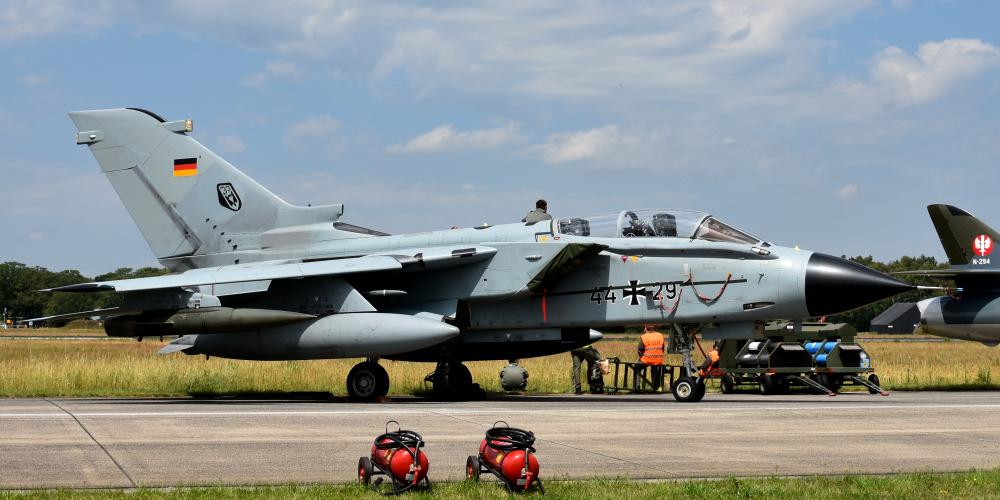Panavia
Panavia Aircraft GmbH is a German company established by the three partner nations of the Tornado Multi Role Combat Aircraft (MRCA) project, West Germany, Italy and the UK. Panavia Tornado
The Panavia Tornado is a family of twin-engine, variable-sweep wing multirole combat aircraft, jointly developed and manufactured by Italy, the United Kingdom, and West Germany. There are three primary Tornado variants: the Tornado IDS (interdictor/strike) fighter-bomber, the Tornado ECR (electronic combat/reconnaissance) for suppression of enemy air defences and the Tornado ADV (air defence variant) interceptor aircraft. 
Panavia Tornado IDS, registration 44+29, built ????, serial number 327/GS090
|